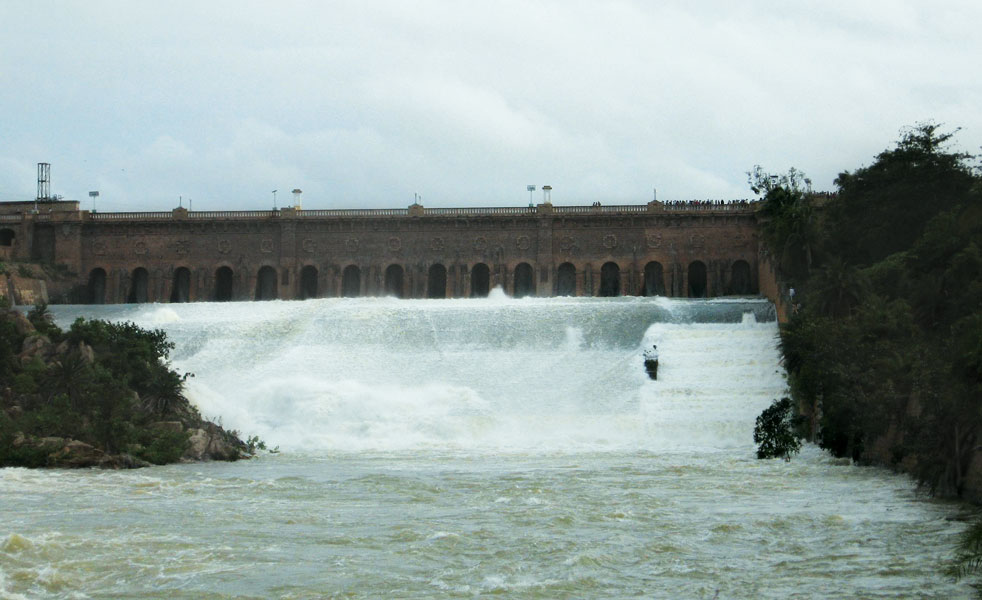Can economics provide a solution to the problem of river waters sharing? This question is important because although Karnataka was ordered by the Supreme Court, no less, to give 6,000 cusecs of the Cauvery River’s water to Tamil Nadu, it refused.


The problem of inter-State sharing of river waters exists between many States. All kinds of recommendations have been made whenever a dispute has arisen. Karnataka is what is called the upper riparian State and Tamil Nadu is the lower riparian State. Both need water but Karnataka controls the flow. So if it says no, there is nothing anyone, perhaps even the Supreme Court, can do about it.
The key to understanding the problem lies in appreciating that this 125-year-old problem can be solved if — and only if — the solution is to everyone’s satisfaction. Remember, India is a democracy and the politicians are answerable to the people. They are very mindful of the voters’ perceptions.
If you were to argue that the politicians should take a long-term view keeping national interest in mind, this will be a non-starter because of the way politics is oriented. The loss of votes will always worry politicians. It is futile to expect responsible behaviour from politicians, especially the ones who are in the Opposition. They will oppose even good things, putting governments on the defensive.
A second recommendation is that such problems are best left to engineers and scientists. This is true, but can they come up with a solution that is acceptable to everyone?
The answer is no. This is because the division must not only be fair, which the engineers and scientists can ensure, but it must also be seen to be fair. This is the crux of any sharing problem.
Tamil Nadu needs to pay for the water it wants. It cannot have it for free. After all, if electricity can be traded between States, why not water?
It doesn’t matter what is being shared. The division must satisfy everyone as being fair by being perceived to be fair.
Economics to the rescue
A partial answer to this problem can be found in a branch of economics called Game Theory. Amongst many other things, this branch discusses strategies that lead to outcomes that satisfy everyone and are seen to satisfy everyone.
The basic postulate of the solution is that what one side receives must be exactly equal to what the other side loses. This is called a Zero Sum Game because one side’s losses are exactly equal to the other side’s gains. The total of losses and gains is zero.
The best known example of this can be found in what is called the Cake Cutting Problem. It can apply to anything that needs to be shared.
The solution is that while one person cuts, the other person chooses. This compels the cutter to cut as close to precisely half as possible. It also ensures that the first player cannot claim that the second player got more. After all it is he or she who cut the cake. There can be many procedures for cutting. But whatever they are, once agreed, both sides must accept the outcomes.
Enforcement
There are two ways of ensuring the enforcement of the agreement. One is to punish the side that reneges; the other is to reward it. This is what economics tells us. The punishment is that the side that rejects the result gets nothing at all. It forces both sides to behave. But this punishment needs to be agreed to by both sides before the sharing formula is implemented.
By this rule, Karnataka should not get any water at all, because under the Constitution, it has agreed to certain things. However, this is clearly impractical. So the reward aspect must be considered. How does Tamil Nadu incentivise Karnataka to release the water?
Simple: Tamil Nadu needs to pay for the water it wants. It cannot have it for free. After all, if electricity can be traded between States, why not water, which is also a scarce resource?
The beauty of this solution is that the negotiation immediately becomes manageable because it is no longer about water but about money. Once a rate seen to be fair is worked out, both sides will get the amount of water they actually need and there will not be exaggerated claims.
And, the problem will be solved bilaterally, without the intervention of a third party.
I can see the people of Tamil Nadu protesting against this solution saying that water is a natural resource and stopping its natural flow by building a dam gives an unfair advantage to the upper riparian State.
But then this is how economics would solve the problem.





